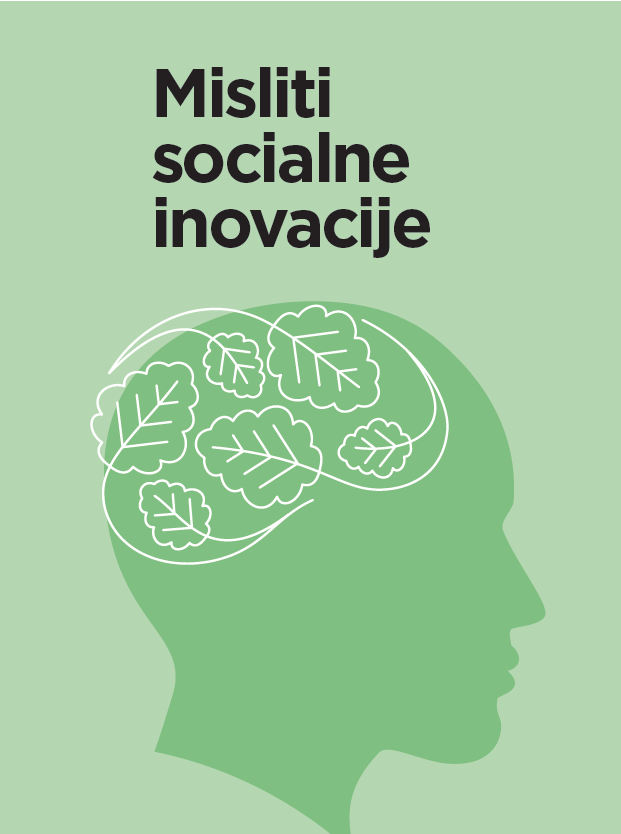SERBIA: SUPPORT TO INNOVATIVE APPROACHES TO INCREASE YOUTH EMPLOYMENT AND EMPLOYABILITY
ELENA MILOVANOVIĆ
Since the beginning of the economic crises, national reports on social inclusion emphasize long-term unemployment of youth and their risk of poverty as one of the key challenges. This is complex problem due to many reasons – lack of sustainable growth, quality of available jobs, learning outcomes, youth work experience, social exclusion and poverty, inefficient partnerships and collaboration between public, private and civil society sector.
In order to address the youth employment from a different angle, Government of Serbia’ Social Inclusion and Poverty Reduction Unit (SIPRU) developed an innovative funding mechanism to foster new approaches. Starting point was to unpack »youth employment challenge« and to support models that effectively address the problem or its part at the municipal level and new innovative solutions as direct response in line with context, resources and capacities available. Tested funding mechanism (in the form of the public Call for proposals/grant scheme) provided opportunity to design, test and scale innovative ideas to tackle youth employment.
The program launched in November 2015 and is still under implementation. Beneficiaries are local CSOs for projects related to youth employment planned in partnership with private sector. Grant scheme provided opportunity to support development of the ideas (novelty for this type of the support) and capacity building on social innovation. For the evaluation of innovation level, social innovation criteria were designed based on the SI-Drive project, but in nutshell we were looking for the “solution that works”.

Call for proposals was aiming to support partnerships between different sectors (civil, private and public) and development, testing and scaling of innovative youth employment models. Cross-cutting principle was inclusion of vulnerable groups such as youth with low qualifications, Roma, youth with disabilities, rural youth, young women, etc. Funding mechanism supported elimination of shortcomings of the existing solutions (lack of clearly defined “who does what and how”). The crucial element in that process was a permanent support to the innovations provided by the SIPRU through intensive monitoring providing any requested support.
The Evaluation Panel gathered different sectors and selected 19 projects. Additional element for concept notes evaluation was social innovation criteria (within the »relevance of innovative idea«). In first cycle, 6 pilots continued to the next phase of implementation (e.g. from early development stage to testing) and 2 solutions were supported to scale up. In second round, 3 projects continued to the next stage. Youth participation in the program doubled (200), it significantly contributed to their employment opportunities and empowerment of vulnerable youth (60% of the total no. of participants in the program).
Highlights are the tested models and personal stories of young people in Kragujevac, Kamenica, Novi Sad (http://www.socijalnoukljucivanje.gov.rs/blog/?author=63). Innovation resulted from the implementation of the model as in the case of small CSO from Kamenica – students’ »traineeships« in local SMEs, with co-working and co-living in their eco-camp. Or case of the local partnerships and building trust among youth, technical school and business with final outcome of modernized curricula in metal processing sector (the SIPRU played a vital role in making systemic impact advocating at Ministry of Education). Two models are providing empowerment for NEET category of youth with improving IT skills. Also, we have good example of providing more tailor-made »traineeships« in companies for youth with disabilities.
The grant program will be running in 2019 with 3 supported models from the second cycle. Also, the results, experiences, lessons learned during piloting of funding mechanism will be collected. Principles of collaboration and inclusiveness should drive future policy design and policy testing in terms of process and implementation. Social innovation approach could be a vehicle in making systemic change focusing on outcomes (e.g. models for youth employment) rather than on measures/services that are not hitting the root cause of the problem.
The funding mechanism (total budget of 500.000 CHF) was managed by the SIPRU through Swiss program »From Education to Employment«. The objective of the program is to increase youth employment in a socially inclusive and sustainable way. Relevant Line Ministries were actively involved in selection, evaluation of the pilots and in lessons learning. Also, consultation process (including online consultations) with youth organizations and business community provided valuable input for design of the grant scheme. http://socijalnoukljucivanje.gov.rs/en/about-us-2/youth-employment-initiative/thematic-grant-scheme-support-to-innovative-approaches-for-increasing-youth-employment-and-employability/
Morda vam bo všeč tudi

COMPREHENSIVE CURRICULAR REFORM IN CROATIA
14/02/2019
ZADRUGA STARA ROBA, NOVA RABA
15/01/2019
